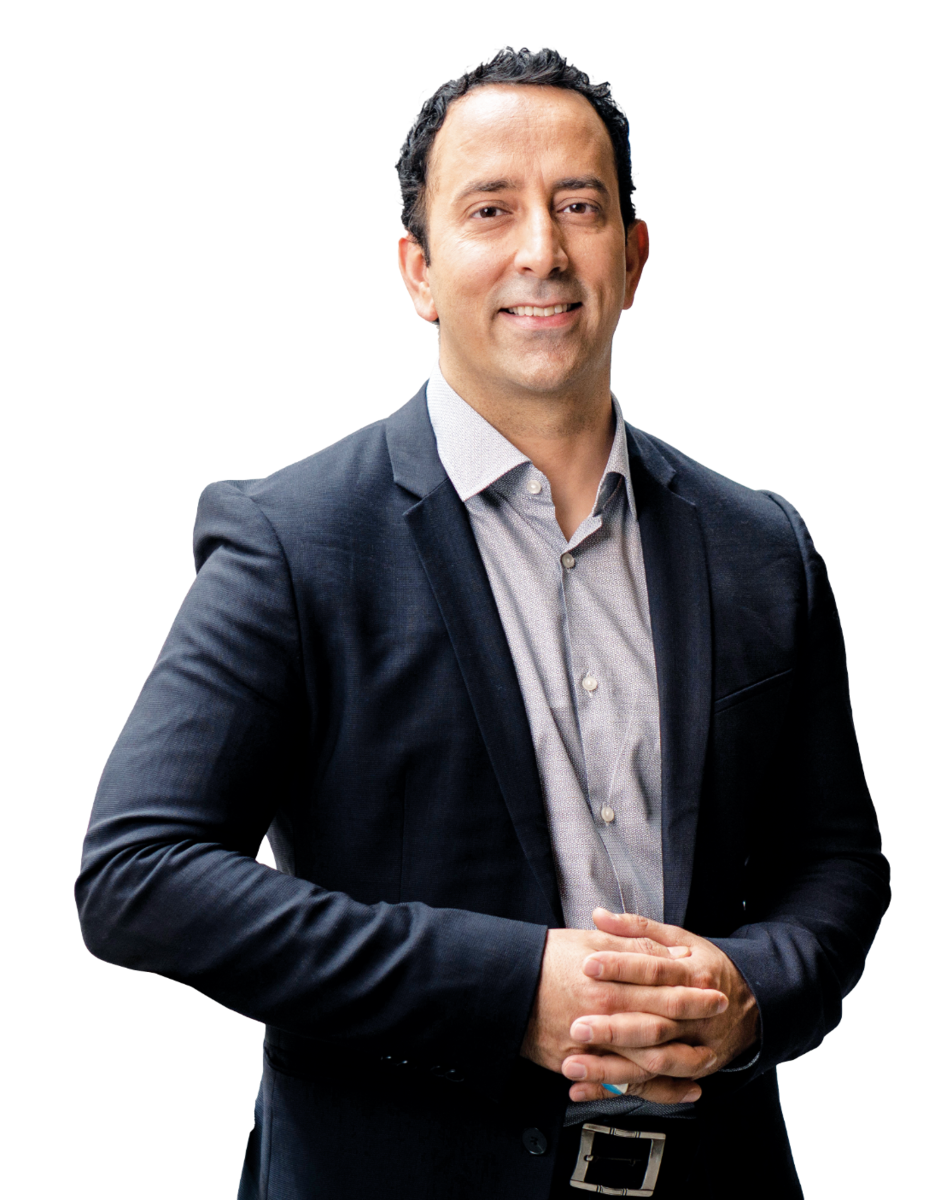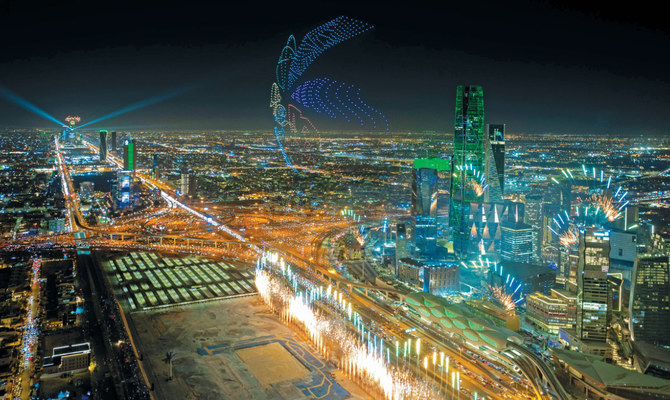LONDON: Saudi Arabia is well placed to become a global leader in the regulation of artificial intelligence by initiating the discussions that will help craft a consensus on how such rules should operate, an expert on the emerging technology said.
Ian Khan, a technology futurist and author who writes on the subject of AI, told Arab News that the Kingdom is “doing a lot with AI” in terms of setting the standards, and is “in a position to take leadership and ownership of setting the framework for AI regulations at a global level.”
He added: “This is where AI regulations can start and this is where the discussion and dialogue for AI regulations can begin, because this is where AI is being implemented in everyday life.”
The Saudi Authority for Data and Artificial Intelligence, which oversees and manages the development and use of AI in the Kingdom, has undergone “amazing growth” and is “leading that mandate” in the country, he said.
In 2020, Khan predicted that AI technology will increasingly become a dominant force in the job market in Saudi Arabia, and said authorities in the Kingdom envision the nation becoming a global leader in AI.
“Jobs will transform into AI, which doesn’t mean people will lose their jobs, but that the industries in Saudi Arabia will benefit from the creation and deployment of AI,” he said.
“You look at (smart city projects in Saudi Arabia) like NEOM, which is so complex, or The Line, they are all driven by artificial intelligence, from managing transportation systems to managing homes.
“We need to have those (AI) regulations in place and at this moment in time, one of the countries from the Middle East will be the one that will start AI regulations.”
It might be Saudi Arabia that fills this role, or the UAE, or both of them working together, because the rules governing AI are beyond the scope of just a single government to decide, Khan added.
“But I think a collaborative force needs to emerge from the Middle East and I think (Saudi Arabia) is in a good position to do it,” he said.
Khan, who is the CEO of Toronto-based technology-advisory firm Futuracy, said the US is lagging other countries in terms of implementation of AI, although the research and knowledge are available and being utilized by some of the biggest companies, but he predicted that “regulations-wise, it’s going to be a nightmare.”
He added: “There’s no regulation on AI, there’s no privacy control, there’s no intellectual property rights on AI, and there are many other issues.”
Still, Khan expects major growth in the use of AI, particularly in Saudi Arabia, where he said curiosity about how the technology will affect aspects of daily life has spiked in the past year.
For example, authorities in the Kingdom have announced plans to develop electric vehicles and the infrastructure for autonomous transportation, in other words, driverless vehicles that utilize AI technology, alongside wider plans to manufacture more than 300,000 cars a year in the country by 2030

Hyundai Motor Group and Lucid Motors have both signed agreements to build manufacturing plants in Saudi Arabia. Meanwhile, Ceer Motors, the first Saudi electric vehicle brand, was founded in 2022 and plans to begin sales in Middle Eastern markets by 2025.
Saudi Arabia is also “building the largest network of EV charging stations in the Middle East,” Khan said, and has established the Electric Vehicle Infrastructure Co. to promote the provision of fast-charging points in all regions of the Kingdom.
And in October 2023, Saudi developer Red Sea Global implemented the largest off-grid electric vehicle charging network in the Kingdom, a move seen as a significant stride toward sustainability.
“You are looking at AI technologies permeating the lives of everyday people, so we have to have regulations, guard rails, protections and safety mechanisms in place,” Khan said.
“Everybody’s loving the growth, and the attention that the (Saudi) leadership is giving to initiatives. There are organizations and sectors, such as energy and manufacturing, that are the stable ones that have been in the Kingdom for decades, and they are growing, but then they are now also investing in sustainability.
“They are looking at carbon footprints … and you’ve got initiatives that are not just about the youth but about growing talent, and that is happening through funding of different agencies.
“But it’s the convergence right now that you’re seeing, and the growth, in the tech sector. For example, King Abdullah University of Science and Technology or Aramco Ventures are really putting in a lot of investment in new, innovative technologies,” Khan continued.
You are looking at AI technologies permeating the lives of everyday people, so we have to have regulations, guard rails, protections and safety mechanisms in place.
Ian Khan, Technology Futurist and Author
“Saudi Arabia is looking to position itself not just as a G20 player, but probably one of the biggest players in the world when it comes to the economy being a financial hub. They’re also looking at climate change, looking to be leaders in oil and gas, but also alternative energy, and in the cultural fields, and the political field as negotiators between conflicting parties.”
Khan praised the Future Investment Initiative — a nonprofit organization launched in 2017 by the Saudi Public Investment Fund and dubbed the “Davos of the Desert” — for the “world-class and pure quality of content, ideas and thought leadership” that takes place at its annual forum, during which major global announcements are made each year.
In terms of developments in the Kingdom in the short term, Khan predicted that Saudi Arabia will have a regulatory framework for AI in place within one or two years, if not sooner.
Looking further ahead, he said: “By 2030, we are looking at some parts of these large infrastructure projects to actually be on stream and to be live and working, so you’re looking at AI being functional in those areas.
“By 2030, I am envisioning that the job market in Saudi will be driven by AI. In terms of AI, talent is needed. Data scientists are needed. People who can use AI in a better way are needed. People, leaders, engineers, doctors who are able to work with AI for their jobs are needed. So AI skills are going to be in demand.”
FASTFACT
Emerging Technologies
In 2020, Khan predicted that AI technology will increasingly become a dominant force in the job market in Saudi Arabia, and said authorities in the Kingdom envision the nation becoming a global leader in AI.
The pace of development of the technology will accelerate in general, he said, with applications in the fields of healthcare and curing diseases, child development, education, tourism, climate change, the food industry, transportation and manufacturing.
“Technology has been evolving at an exponential pace over the past 30 to 40 years, and now we are entering an era of the next machine age, or the fifth industrial revolution, where a lot of our world is going to be automated using artificial intelligence,” said Khan.
“By 2040, I believe that we will have mastered AI regulation, have frameworks and policies that protect people, have formalized and deployed global rules and laws that not just govern people in a country or a region, but globally.”
The majority of the world is increasingly going to be automated and there will be a tool for everything, he added, which will result in what he called “the integration of things,” whereby one or two systems will essentially control everything we use, so that use of numerous different applications is no longer required.
“By 2040 we will also see a lot more intuitive and experiential services that will be part of an AI-driven future, so that the quality of life of people will be much better than it is today,” he predicted.



















